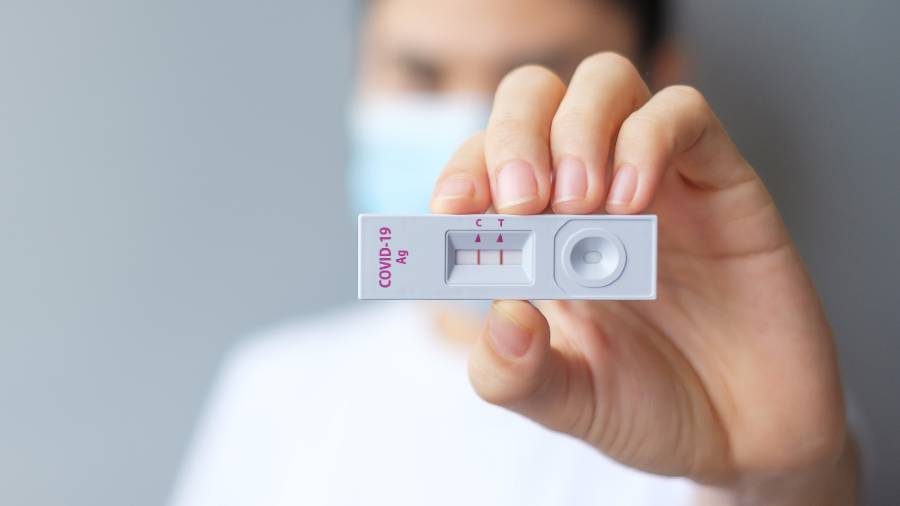Self-testing and no-testing are making many Covid patients in Kolkata turn critical in the third wave of the pandemic, doctors have said.
This time, the majority of those testing positive for Covid are having mild symptoms or are asymptomatic.
However, a number of patients, particularly those who are elderly or infected by the Delta variant of SARS-CoV-2, are requiring admission. The condition of some of them is turning critical, doctors said.
Ignoring lessons learnt from the first two waves, when a number of patients turned critical or died because of late reporting, many people with Covid symptoms during the current surge are not getting tested or are self-testing with rapid antigen kits, which at times give inaccurate results.
“Recently, a 65-year-old man was admitted who, despite having symptoms of Covid, didn’t get tested for five days. On the sixth day, when his son brought him to the hospital, his oxygen saturation had dropped,” said Sauren Panja, head of the critical care unit at the RN Tagore International Institute of Cardiac Sciences.
“Now, many patients are assuming they have been infected by the Omicron variant and hence, they would only have mild disease. Several patients initially did not check their oxygen saturation level,” Panja said.
Many Kolkatans are buying self-test kits and not going for the more confirmatory RT-PCR test.
The sale of rapid antigen home-test kits has spiralled since the current surge began a few weeks ago. Several pharmacies have run out of home-test kits. Those who booked such kits online a week ago had to wait for four days for delivery.
Till December, Apollo Pharmacy outlets in Kolkata would occasionally sell one or two home-test kits.
Since the first week of January, each of the stores has been selling around 30 kits every day, an official of Apollo Pharmacy said.
“At one point we had run out of kits but have replenished our stocks. The demand for home-test kits has again fallen in the last three or four days,” said the official.
Tests done with a rapid antigen home-test kit yield results within 30 minutes, pathologists said.
The website of the Indian Council of Medical Research (ICMR), the apex body for biomedical research in India, has on its website a list of approved home-test kits. There are also links to literature and videos on how to use the kits.
The ICMR’s website also states that the sensitivity of home-test kits approved by it is 50 per cent or above and the specificity is 95 per cent or above.
“The higher the specificity, the lower the chance of the test giving a false positive result (falsely identifying someone as positive for Covid). The higher the sensitivity, the lower the chance of the test missing out on someone who is actually infected by the virus,” said Abhirup Sarkar, a molecular pathologist with Suraksha Diagnostics.
An advisory on home-testing issued by the ICMR in May last year mentioned that “all individuals who test positive may be considered as true positives” and they were “advised to follow home isolation and care”.
“All symptomatic individuals who test negative by RAT should get themselves immediately tested by RT-PCR. This is especially important as RATs are likely to miss a few positive cases presenting with a low viral load,” the advisory said.
According to doctors, the safest thing to do is to seek medical advice and monitor vital parameters if someone is having symptoms of Covid.
“Checking oxygen saturation, pulse rate, temperature and if possible, blood pressure are a must if someone is at home,” said Panja.
Family members should also look for signs like drowsiness and whether a person is feeling unwell, not eating properly and not communicating.
